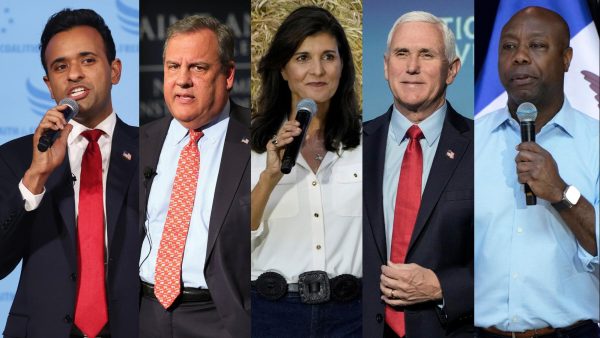Freedom and Security in the World: How Can We Balance Them?
December 20, 2015
With the recent proliferation of terrorism and attacks on cities such as Paris and Beirut, debate regarding the balance of freedom and security has risen globally. Is restricting freedom worth the allowance for more security? When is there a limit to the extension of one of these elements?
Both aspects complement each other, as they are necessary components for a desirable and flourishing society. Although guaranteeing protection may result in limited liberties, the world must find the perfect balance of both security and freedom for a working society.
Our founding fathers, as well as those of many other nations in the world, based America on the concept of freedom, with the Declaration of Independence stating that Americans “are endowed by their Creator with certain unalienable Rights, that among these are Life, Liberty and the pursuit of Happiness.” With the attack on the Twin Towers on September 11, 2001, the demand for security dramatically increased. However, an expansion of security also comes with the preference to enjoy the same freedoms currently in place.
Dylan Wachenfeld ‘18 comments, “I know even in light of the recent attacks people will still be against the result no matter what, but a balance between freedom and security needs to be reached. It also will set precedent for the future of our country and its freedom, so it is a very serious issue.”
Taking into account the number of terrorist attacks in the past few decades, the United States must continue to enforce protection of the people while preserving civil liberties. So far, many states have made attempts to enhance safety measures and to further protect citizens by enlarging existing security agencies and tightening up new and existing security laws. Obama has prioritized maintaining equilibrium between both components, with the enactment of the USA Freedom Act, which imposed limits on the bulk collection of telecommunication metadata of U.S. citizens by the National Security Agency (NSA).
With the USA Freedom Act, the United States succeeded in preserving protection and individual freedoms by adopting policies that reinforce both of them, while taking small steps towards fighting terrorism. It sets a fantastic example for the rest of the world as a successful measure taken to retain an equal balance of both elements.
France has deployed military troops to fight terrorist groups such as ISIS, relying on a strong national defense to secure liberty. Following the carnage of Paris, David Schanzer, director of the Triangle Center on Terrorism, insists that “the massacre will increase calls for more vigorous military action than the coalition has mustered to date.” While France begins to take a more offensive position against terrorism, they continue to allow the practice of customary freedoms, exemplifying another nation who successfully keeps a balance of both freedom and security for the French.
Achieving equilibrium between freedom and security can be difficult, requiring global efforts to combat terrorism. Steps towards establishing international relations among countries, domestic security, and worldwide cohesion must be made. Governments must unite and institute tenacious policies of security while being limited to make decisions that preserve an individual’s freedom and disregarding past xenophobic beliefs.
Sikata Sengupta ‘18 states, “I believe that our response to terrorism ends up being associated with an increase in xenophobia. I think if we have to raise security, we should do it in a consistent way across all races. The media should portray a white supremacist attack with equal weight to an attack by a radical Islamist.”
Implementing an equal balance of both security and freedom is an essential aspect for the success of society. However, with the expansion of terrorist attacks in the last few decades, countries must work together to employ global efforts that effectively deal with international terrorism.






Kina Qiu • Apr 6, 2016 at 11:17 pm
The balance between security and freedom is literally the source of most of the political strife in this country and in others. Almost every issue can essentially be boiled down to this conflict. The freedom to marry those of the same sex versus the security of marriage that a religion or particular set of beliefs insists would be violated by same sex couples. The freedom from government or the security of. The freedom for the owner of a newly pregnant body to choose what happens to it versus the security of the unborn’s life. Attempting to justify the point at which the two are balanced is the essential divide between all political parties, and depends a great deal on personal values and points of view. There is no one equal balance, because we as human beings simply cannot agree on which should be weighted more heavily or even the definition of that equality.